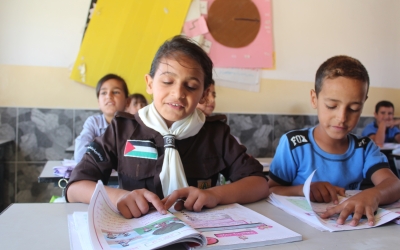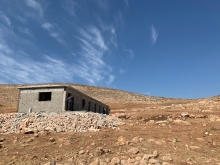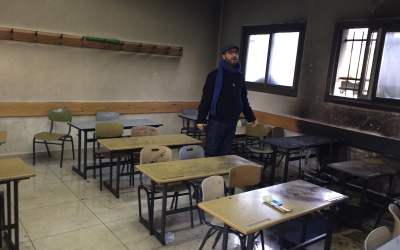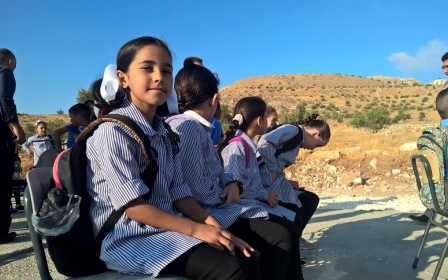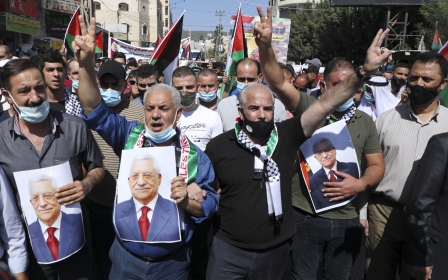Israel's school demolition order leaves Palestinian children in limbo
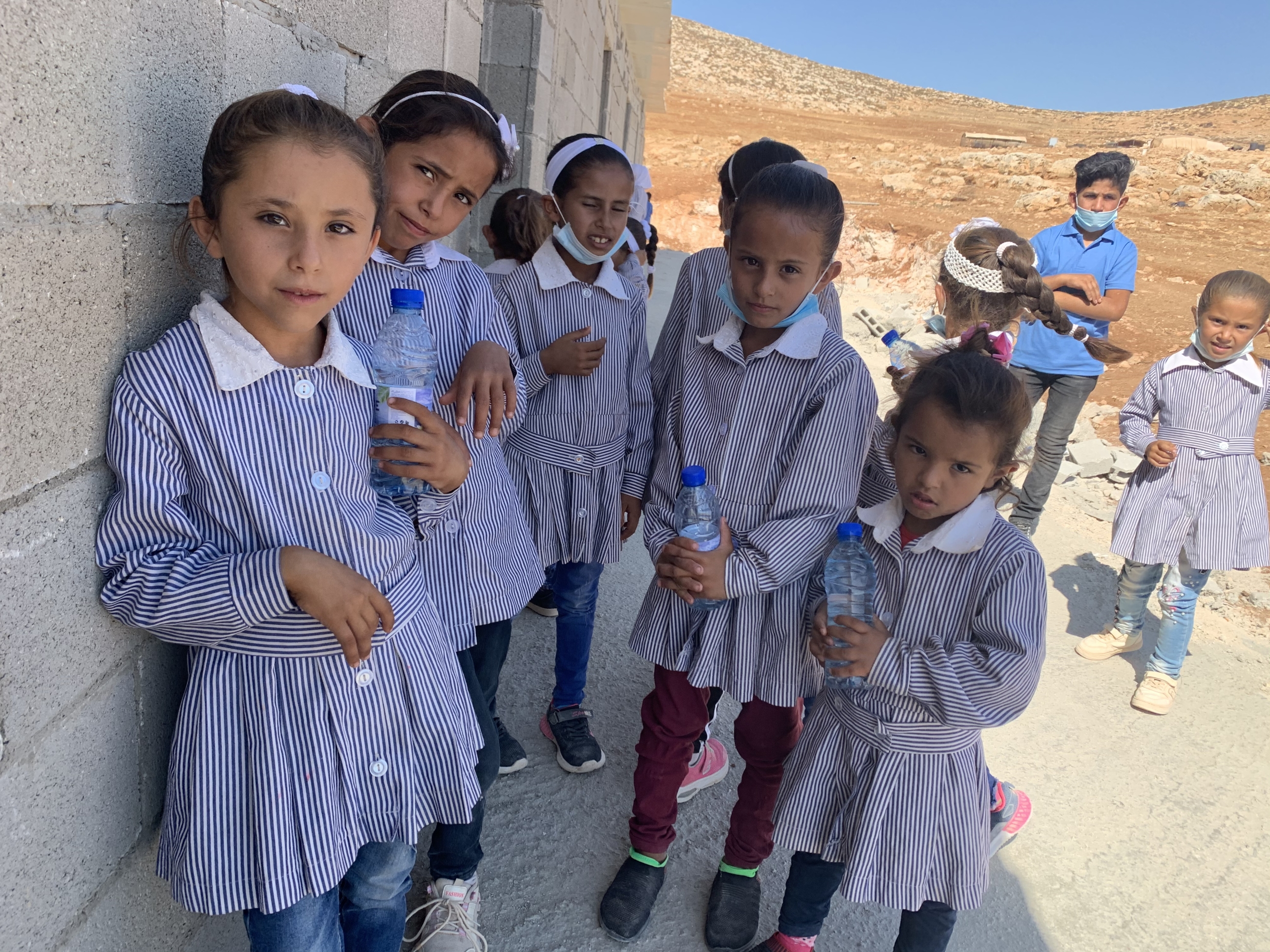
An Israeli court rejected on Thursday an appeal against the demolition of an EU-supported Palestinian school in the occupied West Bank city of Ramallah.
The Israeli authorities had issued a demolition order in September against the newly built primary school in an area known as Ras al-Tin, eastern Ramallah. The order to tear down the school had been made under the pretext of it having being built without a permit in the West Bank's Area C.
The school, built with bricks and a tin roof, and with no doors or windows, had served 50 students aged from five to 13 years old.
‘Challenging the occupation’
Noura al-Azhari, the school principal, told Middle East Eye that the school had been opened at the beginning of the academic year, although it was still not fully equipped.
New MEE newsletter: Jerusalem Dispatch
Sign up to get the latest insights and analysis on Israel-Palestine, alongside Turkey Unpacked and other MEE newsletters
“We have started the academic year, although the school was still not ready, in order to provide education to the children who had to walk around 7km and pass along a settler highway every day on their way to school in al-Mughayer village,” Azhari said.
“It is a way of challenging the occupation and empowering the area’s residents, whom Israel is constantly threatening with expulsion.”
Azhari said that before the demolition order had been issued, Israeli soldiers and settlers had stormed the school on a daily basis, flying camera drones over the school and intimidating teachers and students.
“They have stormed the school every day and confiscated our IDs, while settlers threatened and intimidated us,” she said.
Student Zaid Salama, 13, said that he'd had to walk for long distances in order to reach his school before the one at Ras al-Tin school had been built.
“We were very happy that the school was built. This solved all our problems,” he told MEE. “But the Israeli [authorities] quickly decided to demolish it. Our joy has today turned into grief and outrage.”
Salama believed that besides providing education, the school guaranteed the protection of part of the occupied Palestinian lands from confiscation and settlement.
“If the school is here, this means that we will stay here and that our expulsion will be difficult. The school reinforces our existence,” he said.
Salama’s friend, Malak Omar, 11, told MEE that she “found security in this school” because she was afraid that Israeli settlers would run her over on the way to school in al-Mughayer.
Omar added that “even if they demolish the school, we will build a new one”, a sentiment largely shared by the other students. “The school still needs doors and windows as well as a canteen, a play yard and a toilet,” she said.
The children used to use a remote toilet belonging to the school, before the Israeli authorities confiscated it.
“We want our school developed, not demolished,” Omar said.
A new lesson
In the Arabic language class, teacher Baian Ba’arat gave her students a lesson that was not part of the teaching plan.
“If they demolish our school, we will return and rebuild it,” she said to her students, before bursting into tears.
'Even if they demolish the school, we will build a new one'
- Malak Omar, 11, student
“Although we get afraid and sad, what strengthens us as teachers is seeing children ignoring the [Israeli] army when they storm the school, and still paying attention to the lesson, or sometimes even starting to sing,” Ba’arat told MEE.
Although she faced many challenges on her journey to school, Ba’arat said that she insisted on going every day to support the children, who endured difficulties on a daily basis.
“These children deserve all the support in the world. They deserve to get the best education and school environment, and a bright future where they can realise their dreams,” she said.
EU-supported project
According to Bassem Arikat, the director of education in the Ramallah and al-Bireh Governorate, the school had been built as part of a European Union-supported project, to respond to the needs of the area’s 50 children, who went through many obstacles to reach their previous school.
“The decision to build the school came to provide some security and stability to the children, but the Israelis refused to grant us a building permit and issued a demolition order against it,” he said. “This only serves the [Israeli] settlement and expansion project.”
Arikat stressed that the school had been built on Palestinian land donated by a Palestinian citizen, who’d managed to get official papers from the Israeli authorities that proved his ownership of the land.
The Ras al-Tin school was one of 18 schools built in Area C Schools in these areas were usually called “schools of challenge”, and were supported by the EU and other European organisations.
European support, however, did not guarantee protection or immunity for such projects.
Middle East Eye delivers independent and unrivalled coverage and analysis of the Middle East, North Africa and beyond. To learn more about republishing this content and the associated fees, please fill out this form. More about MEE can be found here.


